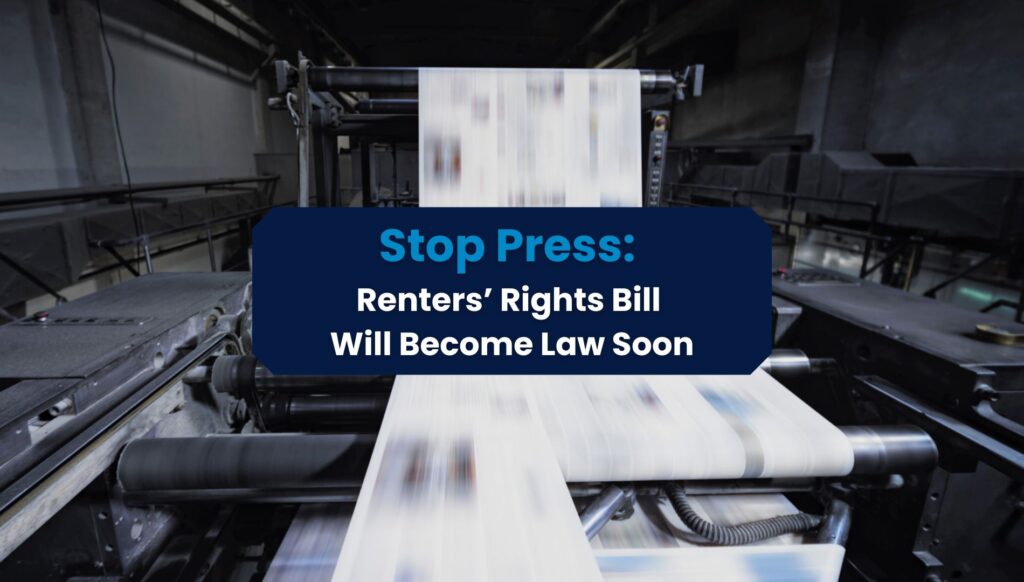
MPs finally passed the long-awaited Renters’ Rights Bill on 22nd October and the new law will come into force soon. Here’s what landlords need to know.
How is the law changing?
Renters’ Rights – which applies to England only – is said to be the biggest change to renting laws in a generation.
Fixed term tenancies (or ASTs) will be ended. Tenancies will become rolling periodic tenancies – likely to be known as Section 4A tenancies. Tenants will be able to leave by giving two months’ notice.
Landlords won’t be able to evict tenants unless they break the tenancy agreement. Section 21 ‘no fault’ evictions will be banned.
But there will be a new Section 8 process for evictions when this is necessary. This has clearer grounds for possession.
Landlords will be able to evict a tenant if they want to sell their property. (But won’t be able to relet it within 12 months if it doesn’t sell.)
There will be a special arrangement for student HMOs allowing landlords to terminate tenancies at the end of the academic year – as long as certain conditions are met.
Other changes include a limit on paying rent in advance of one month (in addition to a deposit). There will be new rules on rent rises, new rules for guarantors, a ban on rental discrimination and a ban on so-called bidding wars.
There will be a new PRS database, which landlords will have to register with. And a new PRS Ombudsman and redress scheme. Landlords will have to comply with the Decent Homes Standard which sets minimum property standards plus new rules on damp and mould problems.
Local councils will have new enforcement powers.
Another big change is that tenants will have the right to request a pet. Landlords won’t be able to refuse unreasonably. (Originally it was proposed that tenants would have to have pet insurance but this requirement didn’t make it into the new law.)
When will these changes happen?
Next step is for the Bill to get Royal Assent and become the Renters’ Rights Act. That could happen within a few days.
But – this is the most important thing for landlords to know now:
These new rules won’t all be brought in at the same time. They will be phased in gradually.
In the final debate Housing Minister Matthew Pennycook merely said: “we will set out our implementation plans as soon as possible”.
It looks like the Government is making the new periodic forms of tenancy and the Section 21 ban priorities. This could happen pretty soon and will apply to both new and existing tenancies. Some experts say this will happen in spring 2026.
The Government has said there will be a grace period of three months before the Section 21 ban comes in however.
It’s almost certain that the other measures will be phased in over several months and years. This is because the details, such as details of the PRS database and Ombudsman scheme, haven’t been worked out yet.
The Government has said that the new Decent Homes Standard won’t be introduced until at least 2035.
What now?
Renters’ Rights means major changes for landlords. Now it has all been finalised the clock is ticking.
But, because the changes will be phased in, it’s important to keep a cool head. We would recommend all Landlords spend some time familiarising themselves with the new regulations.
If you’d like to know more about how our letting and management services can help you adapt successfully to the new Renters’ Rights laws please don’t hesitate to get in touch.